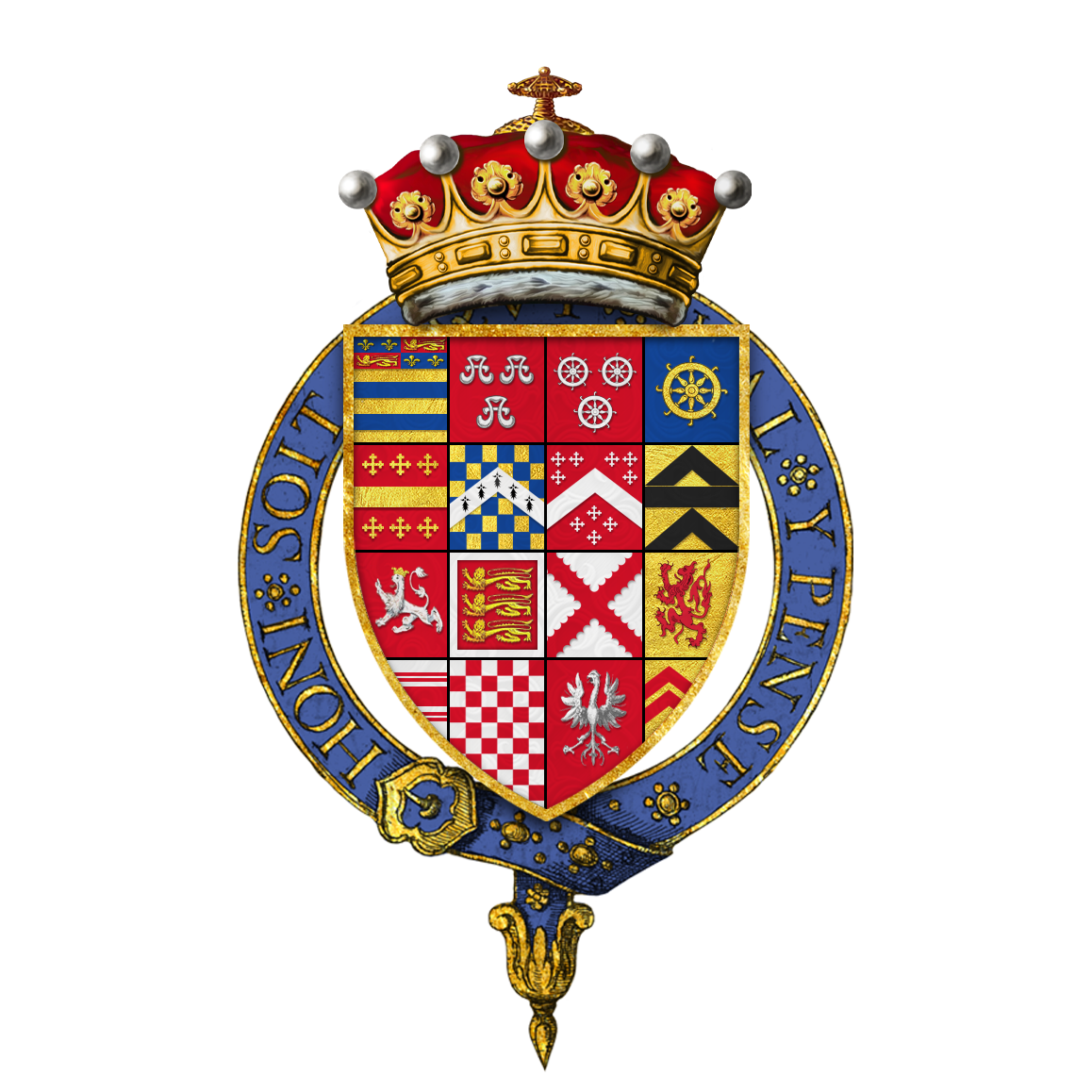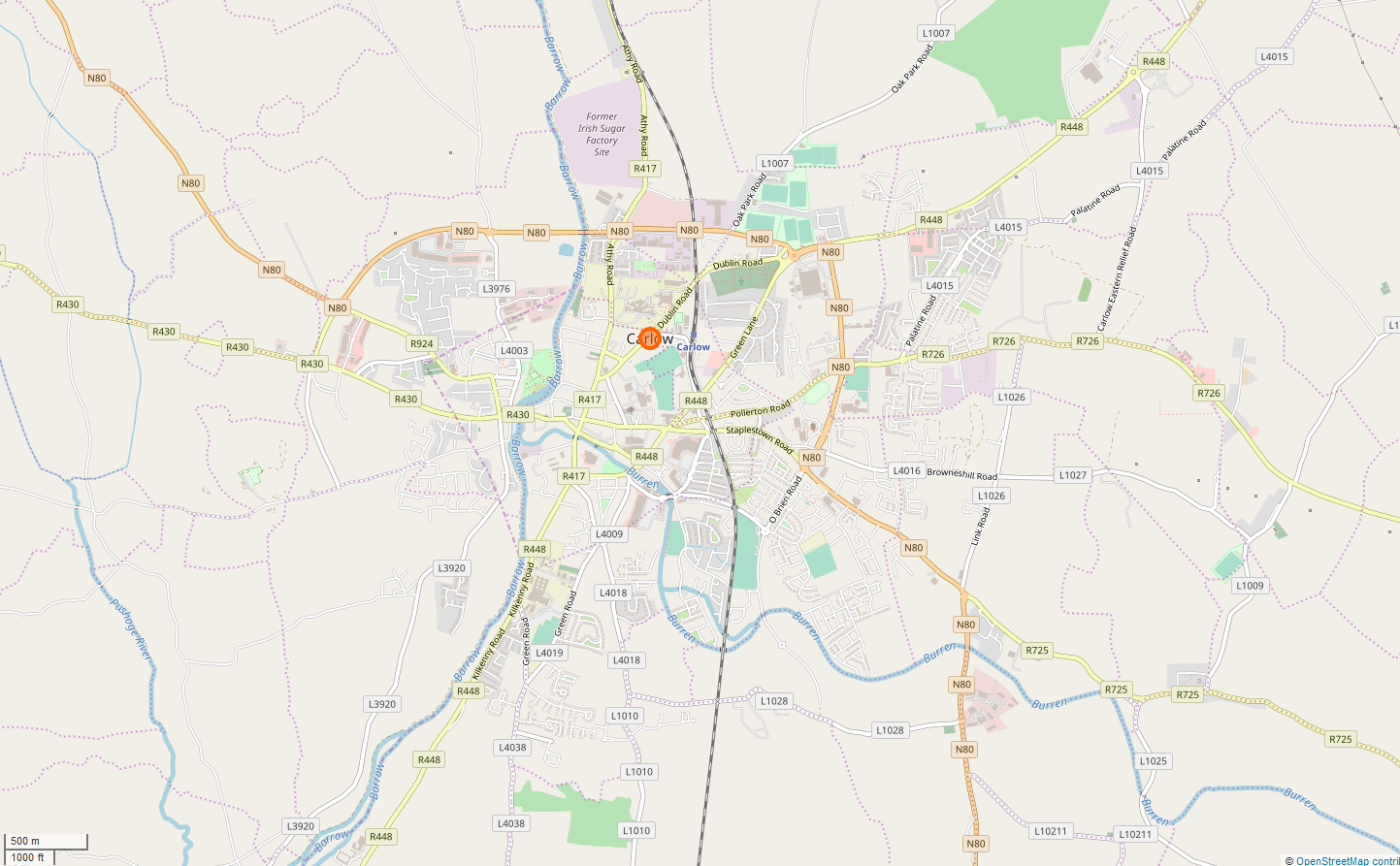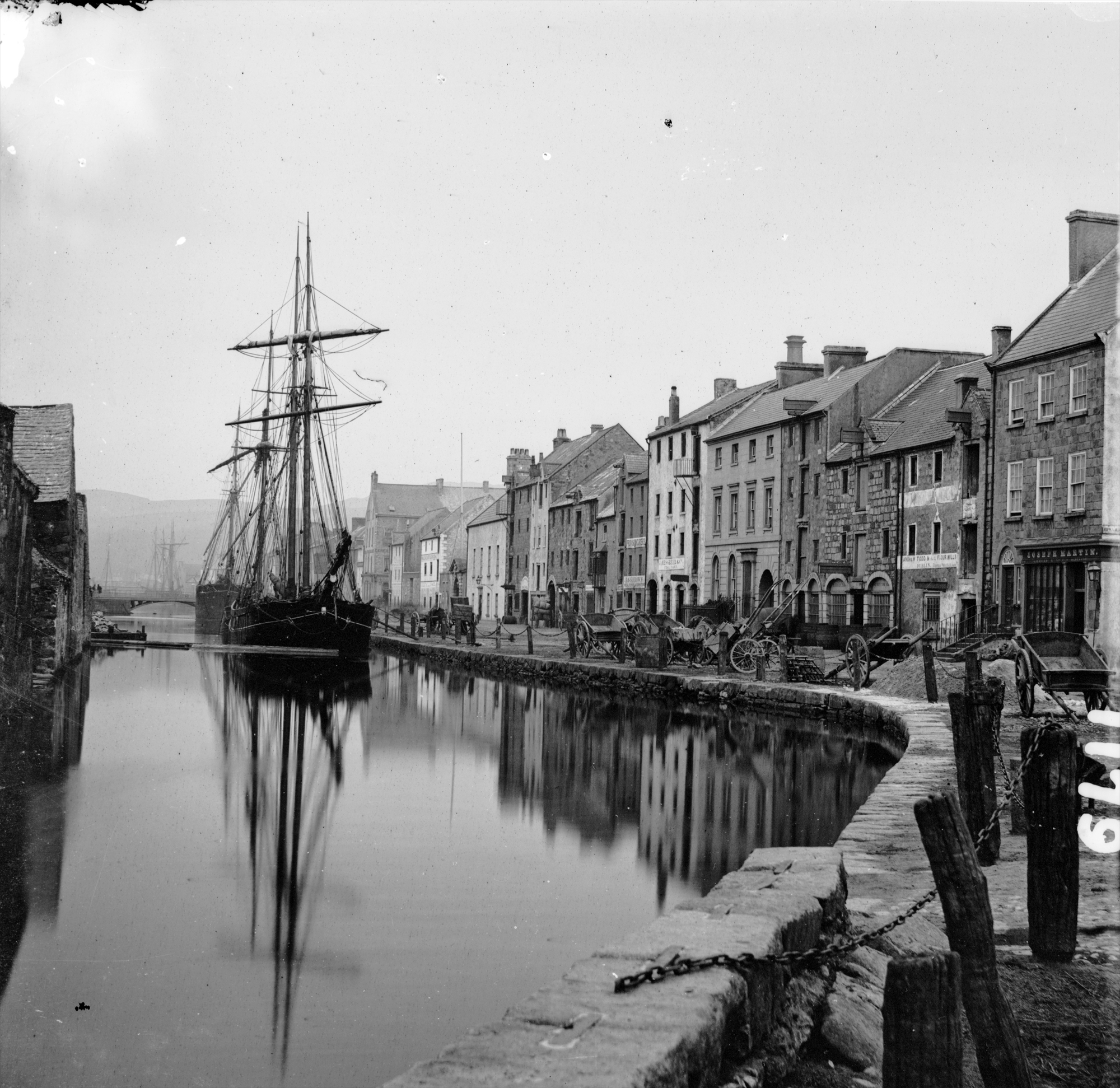|
Henry Bagenal
Sir Henry Bagenal PC (c. 1556 – 14 August 1598) was marshal of the Royal Irish Army during the reign of Queen Elizabeth I. Life He was the eldest son of Nicholas Bagenal and Eleanor Griffith, daughter of Sir Edward Griffith of Penrhyn. His brother was Dudley Bagenal. Bagenal probably matriculated from Jesus College, Oxford when he was 16 (in 1572 or 1573), but left without taking a degree in order to join his father Sir Nicholas who was then marshal of the army in Ireland. In May 1577, Sir Nicholas was appointed chief commissioner of Ulster, with Henry as his assistant. Bagenal was himself knighted in 1578. He was involved in some military disasters, such as a defeat at Glenmalure on 25 August 1580 when Lord Grey led the troops (with Bagenal one of the commanders of the rear) into battle with Fiach McHugh O'Byrne and Viscount Baltinglass in the Wicklow mountain passes. In 1584, Bagenal was colonel of the garrison at Carrickfergus when 1,300 of Sorley Boy MacDonnell's Scots la ... [...More Info...] [...Related Items...] OR: [Wikipedia] [Google] [Baidu] |
Privy Counsellor
The Privy Council (PC), officially His Majesty's Most Honourable Privy Council, is a privy council, formal body of advisers to the British monarchy, sovereign of the United Kingdom. Its membership mainly comprises Politics of the United Kingdom, senior politicians who are current or former members of either the House of Commons of the United Kingdom, House of Commons or the House of Lords. The Privy Council formally advises the sovereign on the exercise of the Royal prerogative in the United Kingdom, Royal Prerogative, and as a body corporate (as King-in-Council) it issues Executive (government), executive instruments known as Orders in Council which, among other powers, enact Acts of Parliament. The Council also holds the delegated authority to issue Orders of Council, mostly used to regulate certain public institutions. The Council advises the sovereign on the issuing of Royal Charter, Royal Charters, which are used to grant special status to incorporated bodies, and city s ... [...More Info...] [...Related Items...] OR: [Wikipedia] [Google] [Baidu] |
Edward Manners, 3rd Earl Of Rutland
Edward Manners, 3rd Earl of Rutland, 14th Baron de Ros of Helmsley, KG (12 July 1549 – 14 April 1587) was the son of Henry Manners, 2nd Earl of Rutland, whose titles he inherited in 1563. Life He was the eldest son of Henry Manners, 2nd Earl of Rutland, and Margaret, fourth daughter of Ralph Neville, 4th Earl of Westmorland. He seems to have been educated at Oxford, though he did not graduate there as a student. He bore the title of Lord Roos or Ros, the old title of his family, until 1563, when by the death of his father he became third Earl of Rutland. He was made one of the queen's wards, and was specially under the charge of Sir William Cecil, who was connected with him by marriage. He accompanied the queen on her visit to Cambridge in 1564, and was lodged in St. John's College, and created M.A. on 10 August. In October 1566, he was made M.A. of Oxford. In 1569, he joined the Earl of Sussex, taking his tenants with him, and held a command in the army which suppressed the ... [...More Info...] [...Related Items...] OR: [Wikipedia] [Google] [Baidu] |
Making History (play)
''Making History'' is a play written by Irish playwright Brian Friel in 1988, premiered at the Guildhall, Derry on 20 September 1988. It focuses on the real-life plight of Aodh Mór Ó Néill, Earl of Tyrone, who led an Irish and Spanish alliance against the English in an attempt to drive them out of Ireland. The play is set before and after the Battle of Kinsale. The battle does not directly feature in the play, although it is central to the plot. The play's other main theme is O'Neill's unexpected third marriage to the much younger, English-born Mabel Bagenal, daughter and sister of two of his most implacable enemies, which the play presents as a genuine though ill-fated love marriage.Peacock, Alan J. ''The Achievement of Brian Friel'' Rowman and Littlefield 1993 Characters * Hugh O'Neill, the second Earl of Tyrone * Hugh O'Donnell, a younger Earl of Tyrconnel *Harry Hoveden, private secretary to O'Neill *Peter Lombard, Catholic Archbishop of Armagh *Mabel Bagenal, third wi ... [...More Info...] [...Related Items...] OR: [Wikipedia] [Google] [Baidu] |
Brian Friel
Brian Patrick Friel (c. 9 January 1929 – 2 October 2015) was an Irish dramatist, short story writer and founder of the Field Day Theatre Company. He had been considered one of the greatest living English-language dramatists. (subscription required). He has been likened to an "Irish Chekhov" and described as "the universally accented voice of Ireland". His plays have been compared favourably to those of contemporaries such as Samuel Beckett, Arthur Miller, Harold Pinter and Tennessee Williams. Recognised for early works such as ''Philadelphia, Here I Come!'' and '' Faith Healer'', Friel had 24 plays published in a career of more than a half-century. He was elected to the honorary position of Saoi of Aosdána. His plays were commonly produced on Broadway in New York City throughout this time, as well as in Ireland and the UK. In 1980 Friel co-founded Field Day Theatre Company and his play ''Translations'' was the company's first production. With Field Day, Friel collaborated ... [...More Info...] [...Related Items...] OR: [Wikipedia] [Google] [Baidu] |
Bagenalstown
Bagenalstown ( ), officially named Muine Bheag (), is a small town on the River Barrow in County Carlow, Ireland. History and name The town grew within the townland of Moneybeg, from Irish ''Muine Bheag'' or ''Muinebheag'' (meaning "small thicket"). In the 18th century there was a small hamlet there. Walter Bagenal decided to build a town on the site, to be named "New Versailles" and modelled after Versailles in France.Mayse, Shirley. ''Our Caswell Relatives''. University of Wisconsin, 1975. p.343 However, shortly after building began, the coach route from Dublin, which had passed the location, was changed so it crossed the River Barrow a few kilometres away, at Leighlinbridge, instead. Bagenal abandoned his plans, having built only a courthouse. It was not until the arrival of the railway in 1846 that the settlement began to grow into a town. In 1911 the town became the first in Ireland to install dual-language street signs, which remain in place today. Following the creat ... [...More Info...] [...Related Items...] OR: [Wikipedia] [Google] [Baidu] |
Carlow
Carlow ( ; ) is the county town of County Carlow, in the south-east of Ireland, from Dublin. At the 2016 census, it had a combined urban and rural population of 24,272. The River Barrow flows through the town and forms the historic boundary between counties Laois and Carlow. However, the Local Government (Ireland) Act 1898 included the town entirely in County Carlow. The settlement of Carlow is thousands of years old and pre-dates written Irish history. The town has played a major role in Irish history, serving as the capital of the country in the 14th century. Etymology The name is an anglicisation of the Irish ''Ceatharlach''. Historically, it was anglicised as ''Caherlagh'', ''Caterlagh'' and ''Catherlagh'', which are closer to the Irish spelling. According to logainm.ie, the first part of the name derives from the Old Irish word ''cethrae'' ("animals, cattle, herds, flocks"), which is related to ''ceathar'' ("four") and therefore signified "four-legged". The second p ... [...More Info...] [...Related Items...] OR: [Wikipedia] [Google] [Baidu] |
Nicholas Bagenal (Welsh MP)
Nicholas Bagenal or Bagenall (1629–1712) was an English MP for Anglesey, Wales. Life Nicholas Bagenal was born in Bath, Somerset, the son of Arthur Bagenal and Magdalene Trevor, daughter of Sir Richard Trevor of Trevalyn, Denbighshire. He was the grandson of Henry Bagenal, Marshal of the Army in Ireland. He owned estates at Plas Newydd in Anglesey and in Newry, County Down. Bagenal was a commissioner of Assessment for Anglesey (1647–1648, 1660–1680), for Caernarvon (1660–1663, 1664–1680), and for Anglesey and Caernarvon (1689–1690). He was elected MP for Anglesey in 1661, and was a Deputy Lieutenant (1661–?1680, 1689–1712) and Custos Rotulorum for Anglesey (1689-1690). He was elected a Fellow of the Royal Society in 1664. Legacy On Nicholas Bagenal's death with no surviving heirs, the family estates at Anglesey and Newry passed respectively to his cousins, Edward Bayly and Robert Needham, and ultimately to the Marquess of Anglesey and the Earl of Kilmorey. ... [...More Info...] [...Related Items...] OR: [Wikipedia] [Google] [Baidu] |
Thomas Manners, 1st Earl Of Rutland
{{Infobox noble, type , honorific_suffix = KG , name = Thomas Manners , title = 1st Earl of Rutland , image = Thomas_Manners,_1st_Earl_of_Rutland.jpg , caption = Effigy of Manners, St Mary's Church, Bottesford, Leicestershire, near to his seat of Belvoir Castle , CoA= , more = no , father = George Manners, 11th Baron de Ros , mother = Anne St Leger , birth_date = c. 1497 , birth_place = , death_date = {{Death date, df=yes, 1543, 09, 20 , death_place = , burial_date = , burial_place = , religion = , url = Thomas Manners, 1st Earl of Rutland, 12th Baron de Ros of Helmsley, KG (c. 1497{{snd20 September 1543), of Belvoir Castle in Leicestershire (adjacent to the small county of Rutland), was created Earl of Rutland by King Henry VIII in 1525. Origins Thomas was the son of Sir George Manners, 11th Baron de Ros ... [...More Info...] [...Related Items...] OR: [Wikipedia] [Google] [Baidu] |
Battle Of The Yellow Ford
The Battle of the Yellow Ford was fought in County Armagh on 14 August 1598, during the Nine Years' War in Ireland. An English army of about 4,000, led by Henry Bagenal, was sent from the Pale to relieve the besieged Blackwater Fort. Marching from Armagh to the Blackwater, the column was routed by a Gaelic Irish army under Hugh O'Neill of Tyrone. O'Neill's forces divided the English column and a large earthwork stalled its advance. Bagenal was killed by an Irish musketeer, and scores of his men were killed and wounded when the English gunpowder wagon exploded. About 1,500 of the English army were killed and 300 deserted. After the battle, the Blackwater Fort surrendered to O'Neill. The battle marked an escalation in the war, as the English Crown greatly bolstered its military forces in Ireland, and many Irish lords who had been neutral joined O'Neill's alliance. Background In 1597, the English Lord Deputy of Ireland, Thomas Burgh, built a new fort on the river Blackwater five ... [...More Info...] [...Related Items...] OR: [Wikipedia] [Google] [Baidu] |
Newry
Newry (; ) is a city in Northern Ireland, divided by the Clanrye river in counties Armagh and Down, from Belfast and from Dublin. It had a population of 26,967 in 2011. Newry was founded in 1144 alongside a Cistercian monastery, although there are references to earlier settlements in the area, and is one of Ireland's oldest towns. The city is an entry to the " Gap of the North", from the border with the Republic of Ireland. It grew as a market town and a garrison and became a port in 1742 when it was linked to Lough Neagh by the first summit-level canal built in Ireland or Great Britain. A cathedral city, it is the episcopal seat of the Roman Catholic Diocese of Dromore. In 2002, as part of Queen Elizabeth's Golden Jubilee celebrations, Newry was granted city status along with Lisburn. Name The name Newry is an anglicization of ''An Iúraigh'', an oblique form of ''An Iúrach'', which means "the grove of yew trees". The modern Irish name for Newry is ''An tIúr'' ( ... [...More Info...] [...Related Items...] OR: [Wikipedia] [Google] [Baidu] |
Monaghan
Monaghan ( ; ) is the county town of County Monaghan, Republic of Ireland, Ireland. It also provides the name of its Civil parishes in Ireland, civil parish and Monaghan (barony), barony. The population of the town as of the 2016 census was 7,678. The town is on the N2 road (Ireland), N2 road from Dublin to Derry and Letterkenny. Etymology The Irish name ''Muineachán'' derives from a diminutive plural form of the Irish word ''muine'' meaning "brake" (a thickly overgrown area) or sometimes "hillock". The Irish historian and writer Patrick Weston Joyce interpreted this as "a place full of little hills or brakes". Monaghan County Council's preferred interpretation is "land of the little hills", a reference to the numerous drumlins in the area. History Early history The Menapii Celtic tribe are specifically named on Ptolemy's 150 AD map of Ireland, where they located their first colony – Menapia – on the Leinster coast circa 216 BC. They later settled around Lough Erne, be ... [...More Info...] [...Related Items...] OR: [Wikipedia] [Google] [Baidu] |
Mabel Bagenal
Mabel Bagenal ( – December 1595) was an Anglo-Irish noblewoman and Countess of Tyrone, often referred to simplistically as the " Helen of the Elizabethan Wars". Life Mabel Bagenal was born around 1571 in Newry. She was the youngest child of Sir Nicholas Bagenal and Eleanor Griffith of Penrhyn, Wales. When her father died in 1590 he charged his son, Henry, with the "careful disposing" of Bagenal through a judicious marriage. Turlough Luineach O'Neill had previously expressed interest in marrying her. The recently widowed Hugh O'Neill, Earl of Tyrone, declared his love for Bagenal and asked to marry her. Hugh Bagenal refused. She was sent to live at Turvey House, County Dublin with her sister Lady Mary Barnewall. Her brother referred the decision to the queen and privy council of England, claiming that his sister was not prepared to live in what he termed an uncivil Gaelic household. A number of prominent officials, including Archbishop Loftus and Sir Geoffrey Fenton, believe ... [...More Info...] [...Related Items...] OR: [Wikipedia] [Google] [Baidu] |


.jpg)





